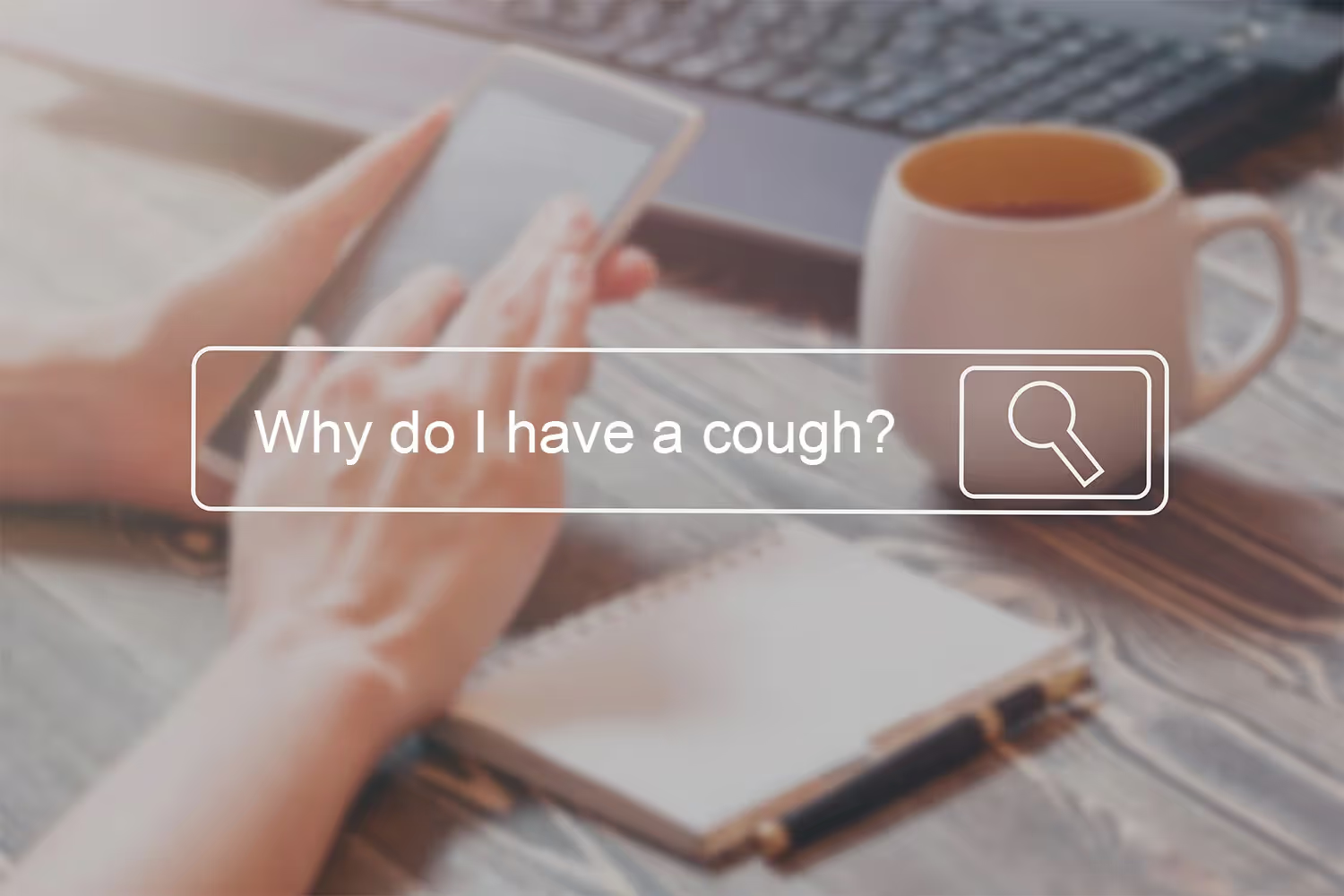9 Problems With and Dangers of Self-Diagnosis
Although the first step when you’re feeling ill is to contact your doctor, that oftentimes isn’t the case. It can be inconvenient to visit or contact a doctor, so we end up trying to take control of our own health by self-diagnosing ourselves.

Have you ever experienced a health symptom that’s never happened before and you started wondering what could be wrong?
The first step should be to contact your healthcare provider to ask for their advice and set up an appointment. After all, they’re the licensed professionals who can diagnose and properly treat us.
But oftentimes, this isn’t the case. It can be inconvenient to visit or contact a doctor, so we end up trying to take control of our own health instead. When we get that random coughing fit or fever, the first thing we like to do is whip out our smartphone and type in our symptoms into our favorite search engine.
While it might seem easier for us to play the doctor, it’s counterproductive and dangerous.
Searching for diagnoses online sends us down a rabbit hole of worry and stress. Online medical information isn’t always correct either. Because of this, self-diagnosing can have negative effects. But 65% of Americans still try to diagnose their symptoms online. There’s a reason we go to doctors for healthcare: they’re the experts, and we’re not.
Here are 9 problems with and dangers of self-diagnosis.
Causes Stress From an Impending Doom
Sometimes we look to Dr. Google for comfort that whatever is going on isn’t a major problem.
But this has the opposite effect.
Search engines could bring up any related illnesses that have similar symptoms. This means that, even if we have minor conditions, we could end up getting results for a serious, life-threatening issue. But there’s no way to completely know everything that’s going on without seeing a doctor.
Browsing through these results doesn’t do any good. You’ll end up causing yourself more stress which even worsens health.
Of those who try self-diagnosing on the internet, 74% became stressed because of their search results. It’s even more dangerous if people convince themselves that they have the condition they stumbled upon. If they feel stressed and believe that they’re sick, they might try treating themselves which could cause more harm than good.
Health anxiety is a real condition that affects around 5% of people but could affect closer to 12% since it’s likely underreported. Those with health anxiety obsess over thinking that they have a serious but undiagnosed medical problem.
They believe that they’re seriously sick, even if they only show minor symptoms. If they’re healthy with no problems at all, they can stress that something is wrong.
While these people typically visit the doctor often, they’ll look online for answers which contribute more to this stress.
Excessively seeking health information online is one of the risk factors for health anxiety. But there’s so much health information out there, so unfiltered or inaccurate results online only make this anxiety and fear worse.
Taking Ineffective or Mixing Medications
After patients look up their symptoms or assume that they have a particular condition, they might take it a step further by trying to treat themselves on their own. One way they could do this is by taking over-the-counter medications or trying an at-home treatment to help whatever issue they think they’re suffering from.
But medications have side effects, so if we don’t need to use it then we shouldn’t. Taking ineffective medicine or more drugs than necessary won’t solve anything. People will suffer from the same ailments unless they take the essential medication. In some cases, taking the wrong medicine could even make conditions worse or cause bigger problems.
A good example of this came during the COVID-19 outbreak. Although there was arguably more fake news spreading about the virus initially, one particular report stood out more than most.
During the first few months of the outbreak, many people spread the rumor that ibuprofen could make symptoms of the virus worse.
This rumor sprung from a The Lancet study produced in March 2020. Their study concluded that an enzyme in the popular over-the-counter drug could compound COVID-19 symptoms and recommended that it needed more study.
From there, many news outlets started reporting on it. It grew so popular that the World Health Organization (WHO) tweeted an official statement to avoid ibuprofen if you contract COVID-19.
Just one day later, the WHO retracted their statement. They then stated that there was not enough scientific evidence to back their claim.
Although this example deals with a special circumstance (i.e. a global pandemic) if anyone Googled their symptoms and diagnosed themself as positive for coronavirus, they might’ve forbidden themself from using ibuprofen.
Individuals should talk to a doctor if they don’t know what their symptoms mean. And they should always consult them before taking any medicine that they don’t normally take. This is even more necessary if they already take other medicines.
Some drugs have negative reactions in combination with each other, so a doctor can inform patients if it’s safe before taking. Those who self-diagnose and take medicine that they think will be effective could end up harming themselves even more.
Incurring Unnecessary Costs
People who become convinced that they have a specific condition from self-diagnosing themself could end up with unnecessary costs. Like I mentioned in the previous section, they could end up buying and taking useless or dangerous medicine.
But this doesn’t only hurt their health, it also weighs on their wallet. Medicine is expensive, so it isn’t helpful to buy it unless it’s going to be effective.
Without first talking to a doctor, people may believe the worst and convince themselves they need a certain treatment. For example, someone with a recurring headache may find that the pain is similar to a brain tumor. The patient might panic and think they need to visit a neurologist and have an MRI right away. If they go through with it, they could end up spending anywhere between $700 and $5,000 on a scan they don’t need.
Now I’m not saying that those with headaches shouldn’t have concerns or that they don’t need those treatments. What I mean is that talking to a primary doctor with an open mind is the first step.
Sometimes patients can’t get an appointment with a specialist without a primary doctor’s referral anyway. But firmly believing that something specific is wrong could lead patients to try to convince their doctor.
It might even be helpful to get a second opinion before having a costly procedure. This could keep individuals from losing money and time on something that they don’t need, but that the internet told them is necessary.
Leads to Unreliable Sources
Another problem with self-diagnosing is how unreliable some health sources can be. It can be difficult to determine their credibility. Yet sometimes we believe the information anyway, even if we don’t know who or where it came from.
It’s dangerous to believe everything we see, even if it doesn’t come from experts because not all data is true.
One study found that the top 1% of false news reached up to 100,000 people, but the truth rarely reached more than 1,000. Fake news doesn’t only reach more internet users, but it reaches them faster. It takes the truth six times as long as false or fake information to reach 1,500 people.
Because of the depth of fake news, patients could end up believing false things about their health. This can cause them to try taking action for their health but harm themselves even more. Or they could neglect to take care of their problem, so the condition gets even worse.
Sharing Fake News
When people see unreliable health news online, oftentimes it gets spread all across the web.
Why this happens has to do with the way fake news reads compared to scientific research. Fake news uses a more understandable and emotional tone. Scientific research papers and findings have a specific format that they follow and the language that they use.
The image above is an example of two different kinds of news articles found on the internet. They’re both about cancer, however, one is fake news and the other is a scientific research paper. Can you guess which one is real?
It’s obvious that the article on the right-hand side of this example is the more accurate piece of content, it's written by four doctors.
However, the fake news article received 5.4 million engagements even though it has no expert support.
How did a fake news article get so much attention? It all starts with the headline.
The fake news article uses a much more emotionally driven and jarring headline. Reading it now, it’s hard not to have the reaction, “Big pharma is withholding a cure for cancer for money?”
Conversely, the scientific research paper’s title is almost a paragraph in its own right. It also uses specific language that it’s targeted reader would understand but no one else.
So what’s my point after all of this? When people engage with and share fake news articles, it makes it even harder for accurate medical information to reach the front page of search engines. In other words, individuals who search for information about their symptoms and self-diagnose themself will end up clinging to, sharing, and living by inaccurate information. It’s a dangerous game that many don’t even realize they’re playing.
Misinterpretation and Confusion
For those of us who aren’t doctors, it can be difficult to understand the medical terms about what we’re experiencing.
We could misinterpret what the symptoms mean, what the condition is, and how it affects our health. Or we could misunderstand the treatment, procedures, and medication options when trying to take matters into our own hands.
It’s best to visit or talk with a doctor about any concerns so they can explain it in a way that most people can understand. That way there’s no confusion so patients better understand their situation.
Stress on Doctors
After looking up symptoms and finding many scary possibilities, people may schedule a doctor visit. This is a positive move. But it’s also a stressful experience for doctors to deal with patients who have already tried to and believe in their self-diagnosis.
Now, doctors have to calm their patients who are considering doomsday ideas. It can be a challenge because, of course, something could be very wrong. But it doesn’t do any good to panic. Health professionals want to get the patients the care they need, even if it is for something serious.
Doctors may also have to deal with people who think they know more than experts based on misleading information. Sometimes, patients will refuse to take medication or neglect their treatment plan because of what they’ve seen online. This leads to an unnecessary burden on health providers. It can be frustrating to give advice but then patients just ignore it because of something they read online and chose to believe instead.
Every Patient is Different
There can also be facts online that are misleading because of the context or lack of other details. Everyone’s health is different. Each family has a different medical history, and an individual’s health differs even more.
But web searches don’t include how a condition or symptom varies for every unique combination of health factors. Most online materials base the data on the average person, and it’s more general.
That’s why it’s so important for patients to reach out to their primary doctors who have their medical history. The doctors can then determine how the individual’s overall health relates to the symptoms they’re experiencing. This gives better insight into the condition that the person has.
Neglect and Feelings of Hopelessness
The first point I made was that self-diagnosing is dangerous because it causes stress and panic. People might take unnecessary actions that instead worsen their problems. But sometimes, it’s the opposite.
Those who self-diagnose might assume the best because they don’t want to worry. They don’t want to visit the doctor, so they’ll play off their symptoms as something minor.
In some cases, it could be something simple enough to treat at home or will heal on its own. This is why it doesn’t do any good to stress before talking to a doctor as I mentioned before.
But on the other end, it could be something serious that needs medical attention. Ignoring it entirely could make it worse. This is why, again, people should reach out to their doctors if they’re experiencing something unusual.
Conclusion
In a perfect world, health information would always be factual, accurate, and could give answers specific to everyone. But this isn’t the case. Misleading and false information fill search results constantly, and it can be difficult to know what’s true.
This makes it dangerous for those who try to take control of their health on their own. They could become stressed, try solving their problems themselves, or neglect that they need care entirely. This makes it difficult for doctors to provide the necessary care.
Emphasize your product's unique features or benefits to differentiate it from competitors
In nec dictum adipiscing pharetra enim etiam scelerisque dolor purus ipsum egestas cursus vulputate arcu egestas ut eu sed mollis consectetur mattis pharetra curabitur et maecenas in mattis fames consectetur ipsum quis risus mauris aliquam ornare nisl purus at ipsum nulla accumsan consectetur vestibulum suspendisse aliquam condimentum scelerisque lacinia pellentesque vestibulum condimentum turpis ligula pharetra dictum sapien facilisis sapien at sagittis et cursus congue.
- Pharetra curabitur et maecenas in mattis fames consectetur ipsum quis risus.
- Justo urna nisi auctor consequat consectetur dolor lectus blandit.
- Eget egestas volutpat lacinia vestibulum vitae mattis hendrerit.
- Ornare elit odio tellus orci bibendum dictum id sem congue enim amet diam.
Incorporate statistics or specific numbers to highlight the effectiveness or popularity of your offering
Convallis pellentesque ullamcorper sapien sed tristique fermentum proin amet quam tincidunt feugiat vitae neque quisque odio ut pellentesque ac mauris eget lectus. Pretium arcu turpis lacus sapien sit at eu sapien duis magna nunc nibh nam non ut nibh ultrices ultrices elementum egestas enim nisl sed cursus pellentesque sit dignissim enim euismod sit et convallis sed pelis viverra quam at nisl sit pharetra enim nisl nec vestibulum posuere in volutpat sed blandit neque risus.

Use time-sensitive language to encourage immediate action, such as "Limited Time Offer
Feugiat vitae neque quisque odio ut pellentesque ac mauris eget lectus. Pretium arcu turpis lacus sapien sit at eu sapien duis magna nunc nibh nam non ut nibh ultrices ultrices elementum egestas enim nisl sed cursus pellentesque sit dignissim enim euismod sit et convallis sed pelis viverra quam at nisl sit pharetra enim nisl nec vestibulum posuere in volutpat sed blandit neque risus.
- Pharetra curabitur et maecenas in mattis fames consectetur ipsum quis risus.
- Justo urna nisi auctor consequat consectetur dolor lectus blandit.
- Eget egestas volutpat lacinia vestibulum vitae mattis hendrerit.
- Ornare elit odio tellus orci bibendum dictum id sem congue enim amet diam.
Address customer pain points directly by showing how your product solves their problems
Feugiat vitae neque quisque odio ut pellentesque ac mauris eget lectus. Pretium arcu turpis lacus sapien sit at eu sapien duis magna nunc nibh nam non ut nibh ultrices ultrices elementum egestas enim nisl sed cursus pellentesque sit dignissim enim euismod sit et convallis sed pelis viverra quam at nisl sit pharetra enim nisl nec vestibulum posuere in volutpat sed blandit neque risus.
Vel etiam vel amet aenean eget in habitasse nunc duis tellus sem turpis risus aliquam ac volutpat tellus eu faucibus ullamcorper.
Tailor titles to your ideal customer segment using phrases like "Designed for Busy Professionals
Sed pretium id nibh id sit felis vitae volutpat volutpat adipiscing at sodales neque lectus mi phasellus commodo at elit suspendisse ornare faucibus lectus purus viverra in nec aliquet commodo et sed sed nisi tempor mi pellentesque arcu viverra pretium duis enim vulputate dignissim etiam ultrices vitae neque urna proin nibh diam turpis augue lacus.


.avif)

